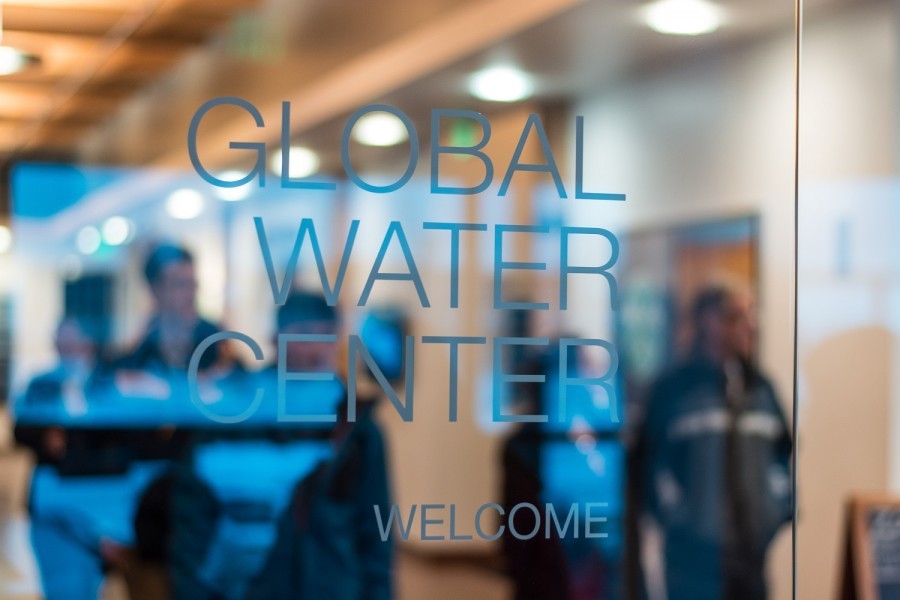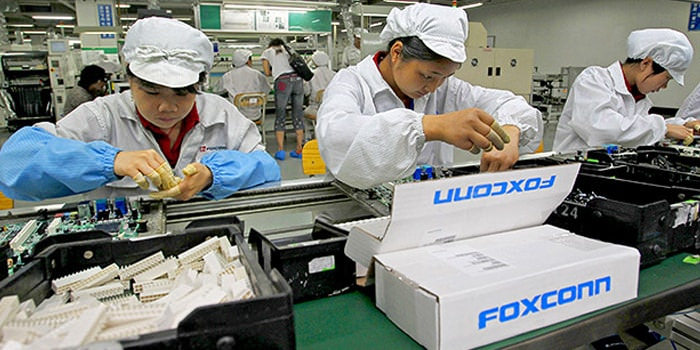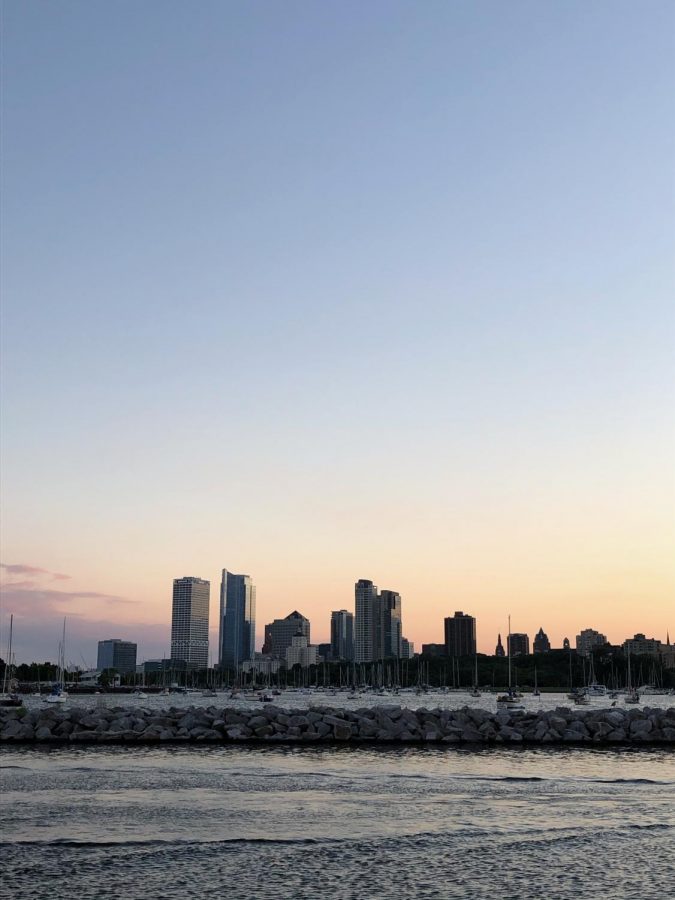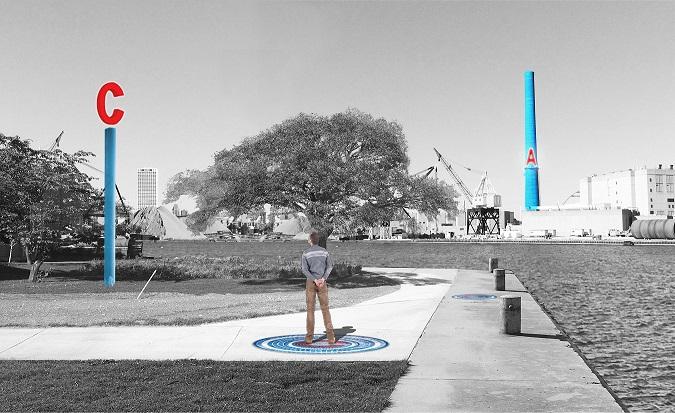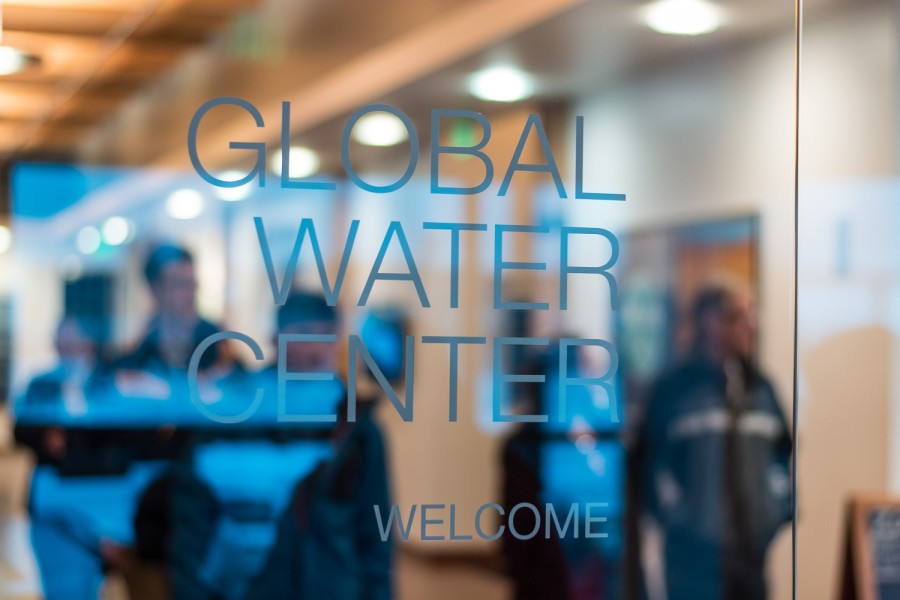Downtown Milwaukee’s Global Water Center is overflowing into a second location after receiving high demand for university-supported water innovation from local and international businesses.
The second location is currently known as Global Water Center Two and will be across the street from the original GWC. This center will focus on connecting businesses with student and faculty research.
Meghan Jensen, director of marketing and membership for The Water Council, said the largest challenge for GWC is continuing to provide businesses with the resources needed to solve the world’s water issue.
“I think that with everything that has been occurring – between the drought in California to the water quality in Flint, Michigan – there is a need for new innovation and more talent,” Jensen said. “We’re trying to fulfill the needs of our members and our members are trying to fulfill the needs of what the world basically needs for clean water.”
Carmel Ruffolo, associate vice president for research and innovation, said Marquette is continuing to promote the growth of GWC.
“(GWC) saw an exciting new development just last month when the City of Milwaukee entered a partnership with Marquette University, The Water Council and the University of Wisconsin-Milwaukee to increase the number of water-related startups,” Ruffolo said in an email.
Despite the need for additional space to accommodate incoming businesses, John Kissel, president of the Marquette University Water Council and junior in the College of Engineering, said university integration into the GWC is slow.
“I have heard from other schools who have moved in to the Global Water Center, this is a slow process, especially during the school year, but I know the lab space has been gathering lab equipment, and some students have been working in the office space,” Kissel said.
GWC currently includes 45 different tenant organizations, including Marquette, University of Wisconsin-Milwaukee and University of Wisconsin-Whitewater. It was announced in a White House water summit in March that there is an expected increase of 75 water-focused entrepreneurs and small businesses over the next five years.
A. O. Smith Corporation, which manufactures residential and commercial water heaters and boilers, leads an initiative in partnership with Council on Competitiveness to develop the national sector study on water and manufacturing. Marquette is co-leading a national initiative to advise the White House and Congress on water solutions.
The initiative focuses on how companies and businesses use water, water technology and water-related policy. In February leaders were brought from around the country for a closed-door meeting to discuss the initiative.
“That report is expected to be delivered to the next U.S. president and Congress, as well as others in government and private industry,” Ruffolo said in an email.
Inclusive collaboration will be available through a shared space in the new building called The Oasis. Startups or smaller businesses will be able to rent a low-cost space, which makes students and faculty more accessible as a resource.
Jensen mentioned how The Oasis also draws in new international companies to collaborate with other businesses and universities.
“(There is a) French company that wants to come over as well, and really immerse themselves and learn from us, and be part of the network,” Jensen said.
Misong Ryu, a GWC research intern, said since coming to GWC through the Korea West Program she has contributed to solutions surrounding international water analysis.
“In this building I can meet a lot of people who are working,” Ryu said. “I can talk with them and learn about water, and I can also learn about ongoing technology.”
Jensen mentioned GWC will continue to develop in the future outside of the original GWC through what she called demonstration sites, where startups, small businesses and universities can test their water technologies.
“In the end we want to help achieve world water health,” Jensen said.

